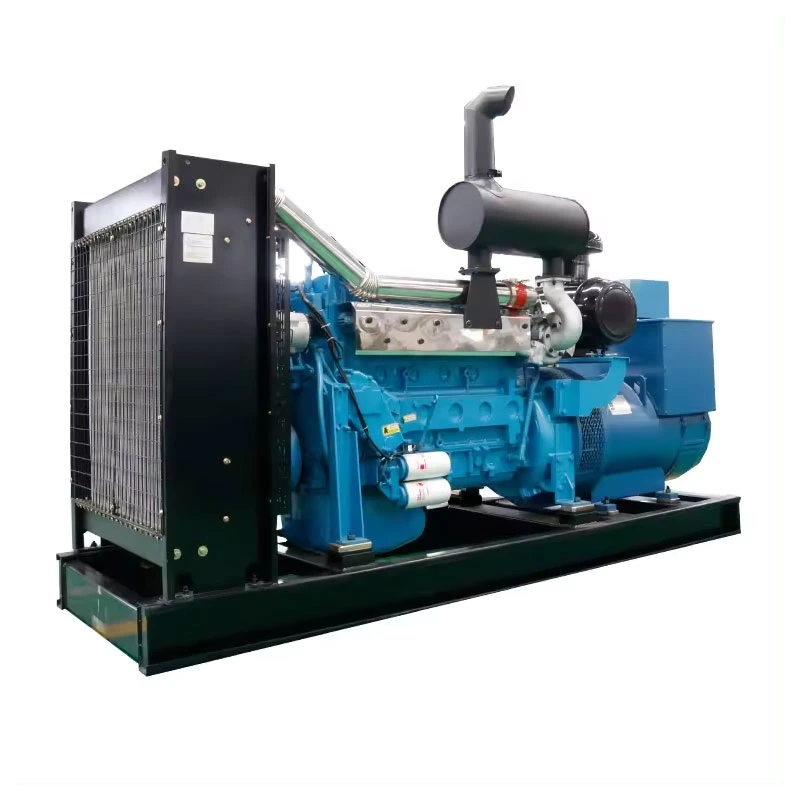Strickland Mitchell
0 Course Enrolled • 0 Course CompletedBiography
Diesel Generators for Data Acquisition Ensuring Reliable Power Supply for Critical Operations
Introduction
In the modern era of data-driven decision-making, businesses and organizations rely heavily on data acquisition systems to collect, process, and analyze data for various purposes. These systems are crucial for monitoring, controlling, and optimizing operations in industries such as telecommunications, manufacturing, healthcare, and more. However, one of the key challenges faced by data acquisition systems is ensuring a reliable power supply to maintain continuous operation. In this regard, diesel generators play a vital role in providing backup power to data acquisition systems, ensuring uninterrupted data collection and processing. This article explores the importance of diesel generators in data acquisition, their key features, benefits, and considerations for selection and maintenance.
Importance of Reliable Power Supply for Data Acquisition
Data acquisition systems are designed to continuously monitor and collect data from various sources such as sensors, meters, and instruments. These systems are critical for real-time monitoring, process control, and decision-making in industries where even a slight interruption in data collection can have serious consequences. Inadequate power supply can lead to data loss, system downtime, and potential damage to equipment, resulting in financial losses and operational disruptions. Therefore, ensuring a reliable power source is essential for the seamless operation of data acquisition systems.
500kw diesel generator for small-scale operations are widely used as backup power sources for data acquisition systems due to their reliability, durability, and ability to provide continuous power for extended periods. Unlike grid power or other alternative power sources, diesel generators can be activated quickly in the event of a power outage, ensuring that data acquisition systems remain operational without any interruptions. This reliability is crucial for industries where downtime is not an option, such as in critical infrastructure, telecommunications networks, and emergency response systems.
Key Features of Diesel Generators for Data Acquisition
1. Power Output: Diesel generators are available in a wide range of power output capacities to suit the specific requirements of data acquisition systems. Whether powering a small data center or a large-scale industrial facility, diesel generators can be sized accordingly to provide the necessary power for uninterrupted operation.
2. Fuel Efficiency: Diesel generators are known for their fuel efficiency, making them a cost-effective choice for backup power generation. With advancements in engine technology and control systems, modern diesel generators are designed to optimize fuel consumption while maintaining high performance levels.
3. Durability and Reliability: Diesel generators are built to withstand harsh operating conditions and provide reliable power supply in all environments. Their robust design, heavy-duty components, and long service life make them a preferred choice for mission-critical applications such as data acquisition systems.
4. Quick Start-Up Time: One of the key advantages of diesel generators is their ability to start up quickly and provide power within seconds of a power outage. This rapid response time is essential for ensuring seamless operation of data acquisition systems without any data loss or system downtime.
5. Low Maintenance Requirements: Diesel generators are known for their low maintenance requirements compared to other types of power generation systems. With regular servicing and proper care, diesel generators can operate efficiently for extended periods, providing backup power whenever needed.
Benefits of Using Diesel Generators for Data Acquisition

1. Continuous Power Supply: Diesel generators ensure uninterrupted power supply to data acquisition systems, eliminating the risk of data loss or system downtime during power outages.
2. Scalability: Diesel generators can be easily scaled up or down to meet the changing power requirements of data acquisition systems, making them a flexible and adaptable power solution.
3. Cost-Effectiveness: Despite the initial investment, diesel generators offer long-term cost savings due to their fuel efficiency, low maintenance requirements, and extended service life.
4. Reliability: Diesel generators are known for their reliability and durability, providing peace of mind to operators of data acquisition systems that critical operations will not be disrupted due to power failures.
5. Environmental Friendliness: Modern diesel generators are designed to comply with stringent emission regulations and are equipped with advanced technologies to minimize environmental impact, making them a sustainable choice for backup power generation.
Considerations for Selecting and Maintaining Diesel Generators
When selecting a diesel generator for data acquisition applications, several key considerations should be taken into account to ensure optimal performance and reliability:
1. Power Requirements: Determine the power output requirements of the data acquisition system to select a diesel generator with the appropriate capacity to meet these needs.
2. Load Profile: Analyze the load profile of the data acquisition system to understand the power demand fluctuations and select a diesel generator with the ability to handle peak loads efficiently.
3. Fuel Efficiency: Consider the fuel consumption rate of the diesel generator and choose a model that offers optimal fuel efficiency to minimize operating costs.
4. Emission Standards: Ensure that the diesel generator complies with local emission regulations and environmental standards to reduce pollution and minimize impact on the surroundings.
5. Maintenance Plan: Develop a comprehensive maintenance plan for the diesel generator, including regular servicing, inspections, and repairs to ensure its reliable operation and longevity.
Conclusion
Diesel generators play a crucial role in ensuring a reliable power supply for data acquisition systems, enabling continuous data collection, processing, and monitoring in various industries. Their reliability, durability, and efficiency make them an ideal choice for backup power generation, providing peace of mind to operators of critical operations. By understanding the key features, benefits, and considerations for selecting and maintaining diesel generators, organizations can ensure uninterrupted operation of their data acquisition systems and safeguard against potential power disruptions. In the ever-evolving landscape of data-driven decision-making, diesel generators remain a dependable and essential component of the infrastructure supporting reliable and efficient data acquisition processes.
